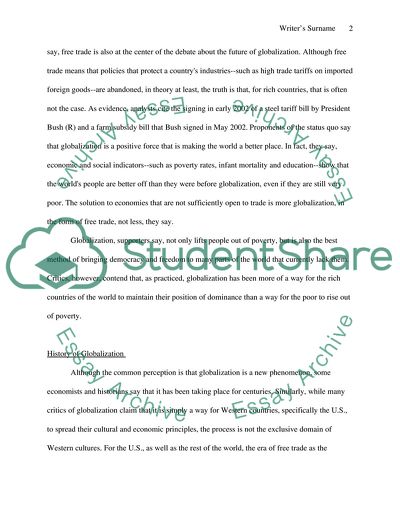Cite this document
(“The Concept of Globalization. Main Effects of the Process of Essay”, n.d.)
The Concept of Globalization. Main Effects of the Process of Essay. Retrieved from https://studentshare.org/macro-microeconomics/1535495-the-concept-of-globalization-main-effects-of-the-process-of-globalization-in-the-contemporary-world
The Concept of Globalization. Main Effects of the Process of Essay. Retrieved from https://studentshare.org/macro-microeconomics/1535495-the-concept-of-globalization-main-effects-of-the-process-of-globalization-in-the-contemporary-world
(The Concept of Globalization. Main Effects of the Process of Essay)
The Concept of Globalization. Main Effects of the Process of Essay. https://studentshare.org/macro-microeconomics/1535495-the-concept-of-globalization-main-effects-of-the-process-of-globalization-in-the-contemporary-world.
The Concept of Globalization. Main Effects of the Process of Essay. https://studentshare.org/macro-microeconomics/1535495-the-concept-of-globalization-main-effects-of-the-process-of-globalization-in-the-contemporary-world.
“The Concept of Globalization. Main Effects of the Process of Essay”, n.d. https://studentshare.org/macro-microeconomics/1535495-the-concept-of-globalization-main-effects-of-the-process-of-globalization-in-the-contemporary-world.


